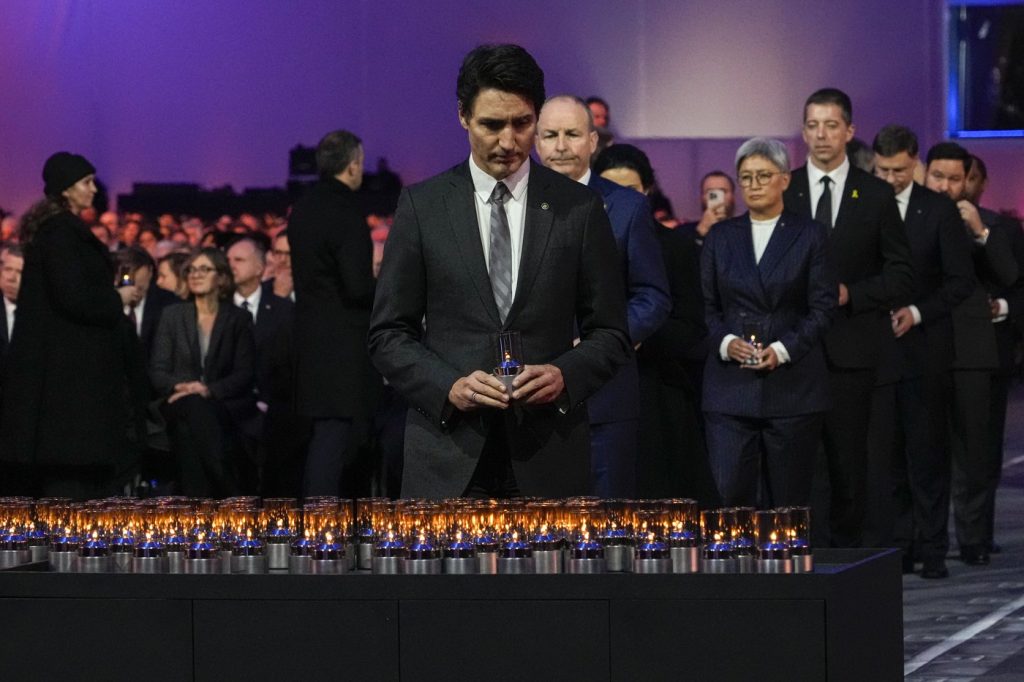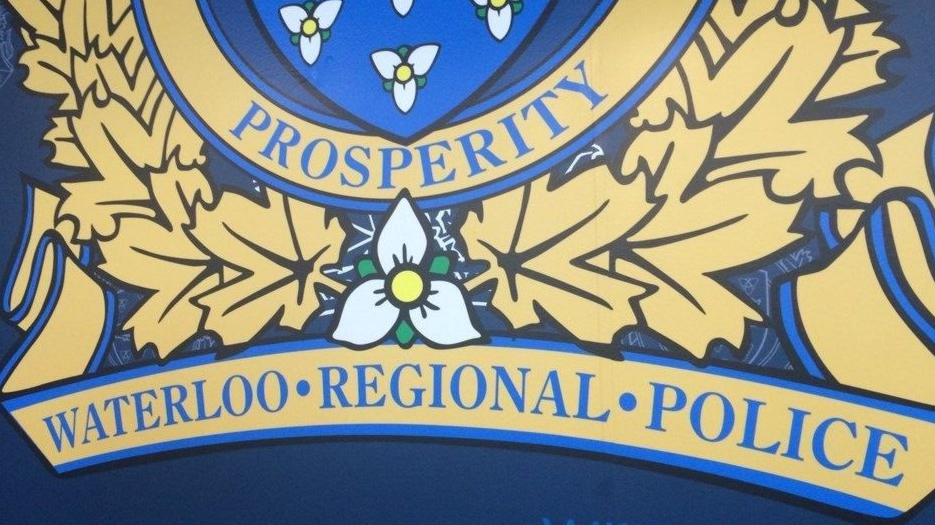Community groups say Canadians are scared as Trudeau warns hate crimes are rising

Posted Feb 6, 2025 04:00:15 AM.
Last Updated Feb 6, 2025 05:49:28 AM.
OTTAWA — As Prime Minister Justin Trudeau and other leaders warn of a rising tide of hate around the world, community groups in Canada say they’re getting more and more calls from frightened people.
At a media availability with Polish Prime Minister Donald Tusk in Warsaw last month, Trudeau said antisemitism is on the rise globally, and especially since Hamas’ terrorist attack on Israel on Oct. 7, 2023. Trudeau was in Poland to mark the 80th anniversary of the liberation of Auschwitz.
“Holocaust denialism is on the rise, violent extremism is on the rise,” Trudeau said. “Hatred, not just against Jews, but against all different races and backgrounds, is on the rise in all of our democracies. And we have not yet responded forcefully enough, strongly enough.”
Noah Shack, interim president of the Centre for Israel and Jewish Affairs, said his organization has seen a massive increase in acts of antisemitism in Canada and around the world in the past year.
“We’ve seen synagogues firebombed all across this country, schools shot at in multiple cities. We’ve seen mobs of violent protesters calling for the destruction of the Jewish people, calling for Jews to be sent back to Europe. We’ve seen the flags of terrorist organizations waving proudly while Canadian flags are being burned,” Shack said. “This is a really distressing time for the Jewish community but I think it should be distressing for all Canadians.”
Zaid Al-Rawni is CEO of Naseeha Mental Health, an organization that operates a mental health hotline. He said his organization has seen a 600 per cent increase in distress calls in the past year.
“It’s causing them a lot of social anguish,” said Al-Rawni. He added that most of the hotline’s users are Muslim and many are feeling that their faith is being questioned by other Canadians.
The hotline expanded this year to 24/7 service, after previously being available only a few hours a day and receiving a few hundred calls per month. It now gets a few thousand calls monthly and more people are now using the organization’s chat feature as well, Al-Rawni said.
He said that while he and his team initially thought the increase in volume would be temporary, it hasn’t diminished for more than a year.
“We’ve accepted the idea that this isn’t a blip,” he said. “This is going to be the new normal.”
Al-Rawni said some callers report that they’re feeling “censored” at work or their careers have been derailed because of their faith. Others say they just don’t know how to process the images they’re seeing from the war in Gaza, or the expressions of Islamophobic hatred they’re reading online.
“It’s clear that people are really anxious about how to deal with the horrors we’ve all witnessed, how we fit in as a faith community to the wider mosaic of Canadian society, a lot of anxiety about the future,” Al-Rawni said. “Add to that the kind of lurching right in the world … the world seems to be making less space for each other.”
The latest Statistics Canada data on hate crimes in Canada shows that between 2022 and 2023, the total number of police-reported hate crimes increased from 3,612 to 4,777. The reported number of hate crimes has been rising steadily over the last few years.
Statistics Canada says that in 2023, 2,128 police-reported crimes were found to be motivated by race or ethnicity, while 1,284 cases were said to be motivated by religion.
Of those police-reported hate crimes, 900 targeted Jewish people, 784 targeted Black people, 228 targeted South Asian people and 211 targeted Muslim people. Sexual orientation was the motivation for 860 of the reported crimes.
A 2019 Statistics Canada survey said that Canadians self-reported being the victim of more than 223,000 hate crimes — and only about one incident in five was reported to police.
Evan Balgord, executive director of the Canadian Anti-Hate Network, said the Statistics Canada data on police-reported hate crimes is “not representative of reality” because Canada doesn’t collect “any kind of accurate or representative data on the amount or type of racism and other forms of hate that are experienced by groups.”
“That said, all the imperfect data suggests, and organizations that represent particular communities will agree, that things are getting worse,” he said.
Shack said it’s critical for laws to be enforced and for communities to be kept safe, both through community-based solutions and by ensuring that police have the resources that they need.
“I don’t think that our public institutions have done enough to push back against it and to make it clear and unequivocal that that kind of stuff does not belong in this country,” he said. “There needs to be a unified approach across all levels of government.”
Federal Justice Minister Arif Virani told the Canadian Bar Association’s annual general meeting on Tuesday that “we all need to stand together against hatred.”
He said that as a racialized Muslim he knows “too well” the devastating impact crimes can have. He said Canada leads the G7 in the number of deaths linked to Islamophobic hatred — 11 since 2017.
“It has likewise been devastating to me to see other communities face a terrible rise in hate crime, including, and especially in the past year, the Jewish community right across the country,” Virani said, adding that he will host a national forum on combating antisemitism next month.
Sabah Ghouse, program coordinator for the Islamophobia Legal Assistance Hotline, said the number of calls her organization receives doubled between 2023 and 2024.
“We’ve received cases such as violence against Muslims in the forms of physical and verbal attacks. We’ve also seen workplace discrimination, discrimination at schools and universities, tenancy-related issues as well as defamation and negligence,” she said.
Ghouse said people are “definitely scared.”
“No tangible solution has been put into place to combat Islamophobia,” she said. “We need those in power and leadership, such as politicians, to unequivocally stand with Muslims and against Islamophobia. And we’re not seeing that, unless it’s for election cycles, or when a terror attack against Muslims occurs.”
This report by The Canadian Press was first published Feb. 6, 2025.
Catherine Morrison, The Canadian Press








